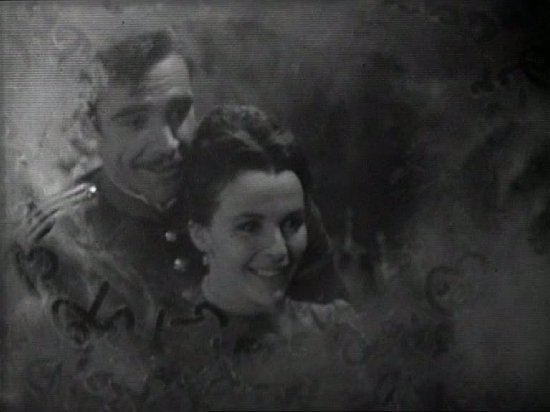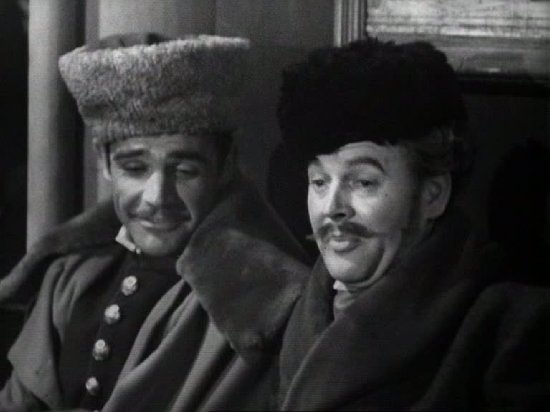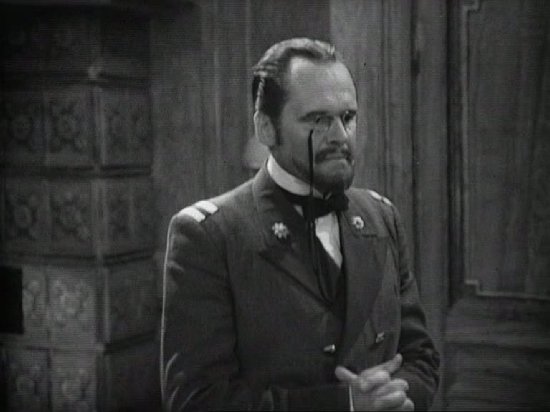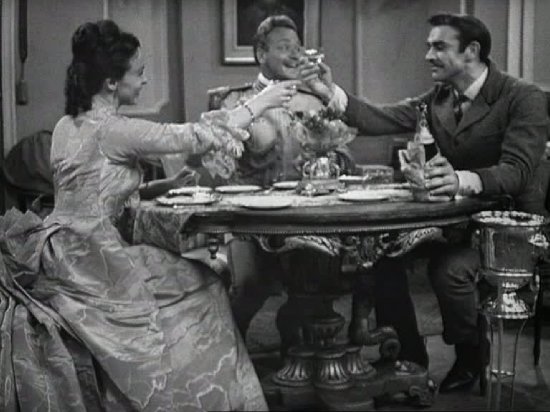Anna Karenina
Generally regarded as perhaps the greatest novel ever written, Anna Karenina was Leo Tolstoy's first real attempt at writing a novel, with War and Peace not really classified as such because of its historical background, excursions from the narrative to add some historical and philosophical perspective on events with the benefit of hindsight. This was a completely different type of book and style of writing as it was more of a romantic story set against the backdrop of Russian society and religious and political mores of the time than anything that attempted to seriously document one of the most important moments in 19th century European history.
Although the book is generally set around the actions of the titular Countess, there are a great deal of peripheral and side characters who have a great number of words devoted to them because of their importance to Anna Arkadyevna Karenina, her husband Alexis Alexandrovitch Karenin (there a Russian convention whereby a surname that ends in a consonant acquires the letter 'a' at the end when it refers to a woman) and various members of their social circle.
The plot, to put it basically, follows Anna Karenina and her gradual estrangement from her husband as she develops an attraction to Prince Alexei Krillovich Vronsky a friend of Konstantin Dmitrievich Levin, who had travelled, along with various other members of the social circle, to Moscow with the intention of proposing to a friend of Anna's, Princess Katarina Alexandrovna Shcherbatskaya, known to everyone as 'Kitty'. At the railway station, one of the workers falls in front of the train and is horribly injured, screaming loudly enough for everyone to hear and, in a state of shock, Anna develops an immediate attraction to Vronsky. This only strengthens as they spend more time around one another at dances and other social occasions.
Although Alexei knows that something is going on, he can't prove anything and, even if he could, divorce was a very different matter back in the 19th century. As a minor statesmen and respected academic, he has his reputation to think of and really can't accept his wife making eyes at another man in public or expressing concern for his safety as when he falls off a horse during a steeplechase. A divorce is similarly unpalatable but he wants to work something out to punish his wife; he therefore forbids her from having access to their son and keeps Anna and Vronsky isolated from society in his country house. Initially happy in the country with her lover, Anna grows increasingly miserable, missing her son enormously and suspecting Vronsky of being unfaithful. As her happiness grows her behaviour becomes increasingly erratic, not knowing who she can trust leading to a devastating climax.
There have been many adaptations of Anna Karenina, both as films and operas in both English and Russian, and this was a made for TV film produced by the BBC in 1961. Apparently this was entirely filmed in Studio Three of Television Centre and it certainly has an appearance that is more akin to a filmed stage play than a high budget period drama of the sort that the BBC specialises in now. There is a reasonably good cast with Sean Connery as Vronsky and Claire Bloom as Anna. This was made only one year before Connery would come to worldwide attention playing James Bond in Dr. No and Claire Bloom went on to have an extremely successful career, playing Theodora in Robert Wise's brilliant thriller, The Haunting, in 1963.
As the screenwriters have really gone to town on Tolstoy's book with a pair of scissors and chopped out a massive amount of the novel, this is unlikely to satisfy the purists or devotees of the book but it's the sort of thing that will suffice for people who really don't know the source material and won't feel as if they're missing out on being shortchanged. As I had only read the book a few weeks before watching this, it was relatively fresh in my mind and the film felt a little thin and missing something. In the adaptation process, the multitude of characters, locations and situations that really make the novel the great work of art that it is are lost and relationships, situations and moments of dramatic tension suffer as a result.
Overall, this doesn't really get to grips with the depth of Anna and Vronsky's relationship -- their daughter is barely mentioned -- and what a massive step divorce was in those days, nor does it really develop her feelings for her son, Seyozha, (who is known throughout the film by his 'proper' name, Sergei). It is reasonably involving but does a great disservice to the book which is incredibly ambitious, very long (though at a guess, just over half the length of War and Peace) and an absolutely engrossing read. The film is fairly superficial by comparison but is one of those matinée movies that works if you don't go with very high expectations and just want something fairly lightweight to watch.
The Disc
The Picture and Sound
Although the costume budget looks quite high, other aspects of the production don't fare so well with some of the sets appearing to be of the cardboard variety and the fall in the steeplechase, that really should be one of the most exciting and dramatic moments in the first half of the narrative, just looks particularly silly and there is no way that you believe that horse Frou-Frou was shot because of a broken back.
Some of the film appears to have aged less well than the rest and you can really tell what it cuts to a damaged section of film and then back to one of the better stored pieces of film. Although the actors mostly speak in clipped tones, Sean Connery has a fairly noticeable Scottish accent which is always struggling (and, occasionally, succeeding) to get through and the overall sound quality is inconsistent so you do get slight drop outs and I found the English HoH subtitles fairly useful and left them on for the entire running time.
Final Thoughts
This is the only film adaptation of Anna Karenina that I have seen and, as It was as superficial as I had feared, I feel think it's something that is probably best left in book form. Without many hours to devote to the intricacies of Russian society and the myriad characters that Tolstoy places around Russia and the various social circles, you're left with something that feels a little flat and underdeveloped so the dramatic ending doesn't carry the emotional punch that it should.
I'm sure there will be people who will be extremely glad to see this on DVD if only because it is a reasonable introduction to Tolstoy's masterpiece and if this does get people reading the book, then so much the better.
There is absolutely nothing on the disc apart from subtitles and scene selection but it really is difficult to see what sort of extra features something like this would attract -- I wouldn't have thought that Claire Bloom or Sean Connery would rush into recording for an interview or commentary track.




Your Opinions and Comments
Be the first to post a comment!